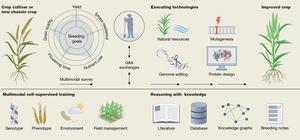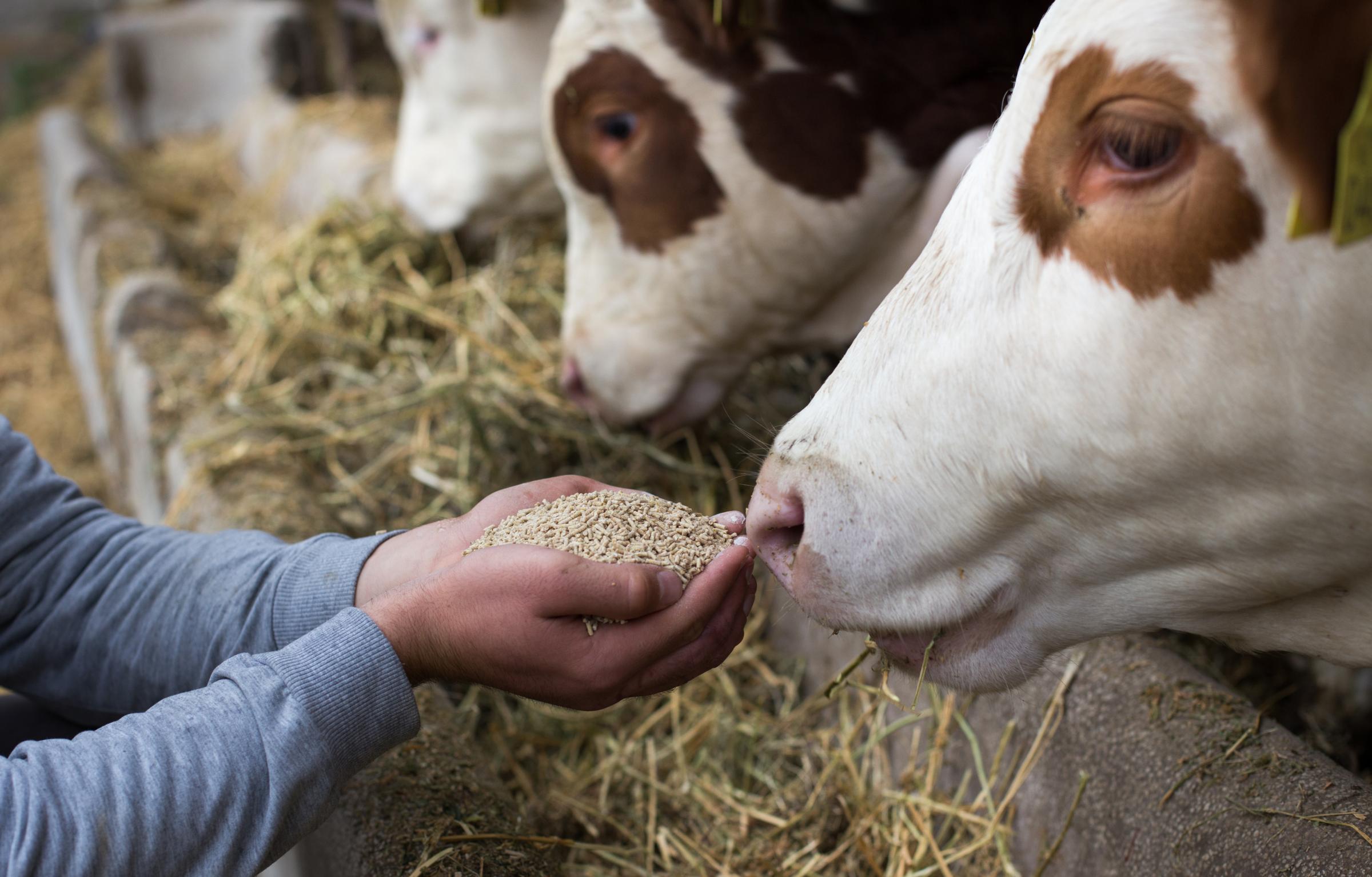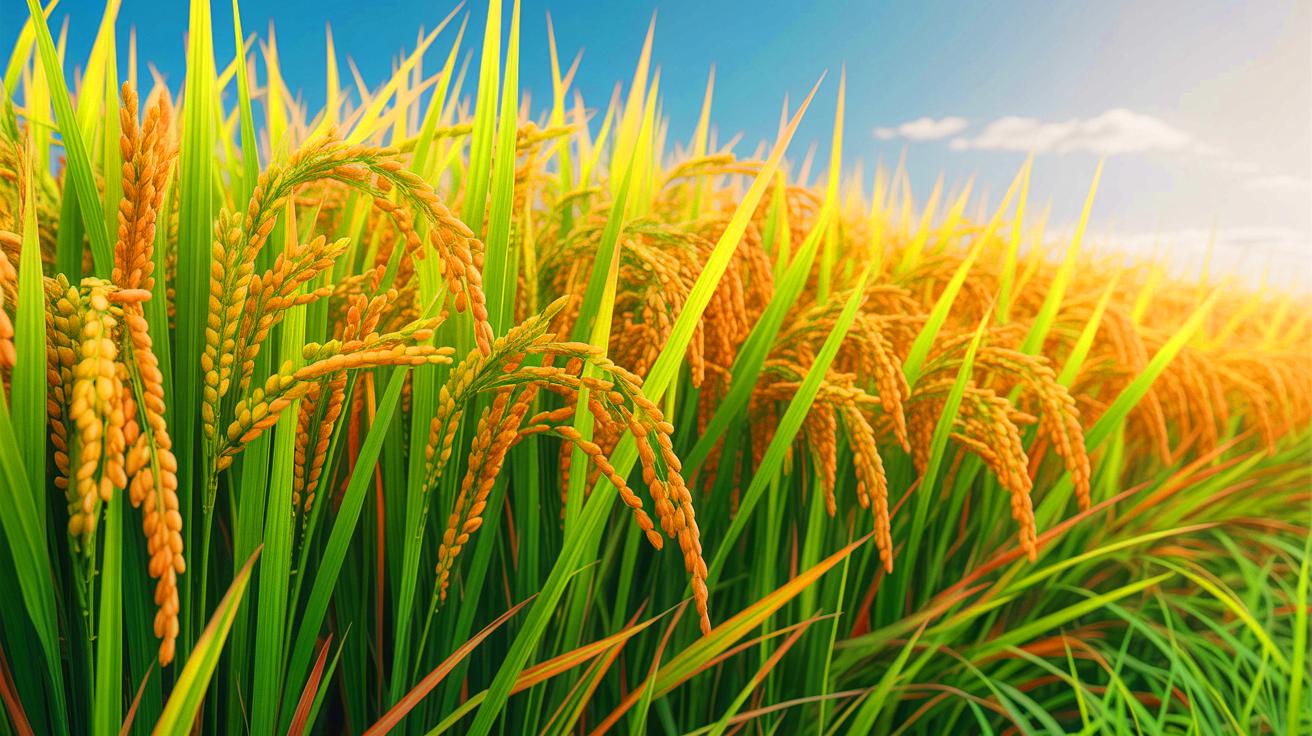
Science for Sustainable Agriculture
@SciSustAg
Think-tank promoting science-based info, comment & debate on sustainable agriculture & food production.
“Growing less food per acre is leaving less land for nature.” Nobel Peace Prize laureate Norman Borlaug, 1970

Is AI-assisted crop germplasm design the future of plant breeding? eurekalert.org/news-releases/…

Agronomy expertise and AI combine to deliver real-time, actionable insights. Smartphone app to detect deadly potato blight before it strikes will make disease management more targeted, benefiting both the environment and productive agriculture. farminguk.com/news/farming-s…

"..in light of climate change, sustainability and food security, Europe urgently needs a science-based, fit-for-purpose legal framework to govern NGT plants and products to strengthen the competitiveness and resilience of EU agriculture and supply chains." thepoultrysite.com/news/2025/07/a…
Global adoption of GM crops reached a new record high of 210 million hectares in 2024. Leading GM crops are soybeans, (105.1m ha) corn (68.4m ha), cotton (24.8 m ha), and canola (10.4a ha). 28 countries approved new GM varieties in 2024. seedworld.com/latam/2025/07/…

Climate impact of different farming systems must be assessed in terms of usable output, not area farmed, and must also account for indirect Land Use Change (iLUC) effects where food production is displaced by the adoption of lower yielding practices. scienceforsustainableagriculture.com/stevesavage

On NGTs: “The organic community is not a homogenous group. The official policies of some organic associations are one thing, but some researchers in the organic field and also some of the organic farmers themselves are more open than one might expect.” anthropocenemagazine.org/2025/07/neithe…

"Of course, there is an economic model where you produce less, but at a premium price. However, I can’t shake my concerns over whether this is ethically the right thing to do, when so many people cannot afford to buy food." @FarmersWeekly fwi.co.uk/arable/farmer-…

Further evidence of why real-time, farm-level data is needed to understand the environmental impact of different farming systems. In relying on US-based estimates, Australians have been over-estimating the methane emissions of their feedlot cattle by 56%! thescottishfarmer.co.uk/news/25319172.…

Planted in disease-heavy plots, field trials of gene edited disease-resistant rice showed an impressive yield, producing five times more grain than the control plants affected by the rice blast fungus. rudebaguette.com/en/2025/07/the…

Pro-innovation UK think-tank calls on House of Lords to withdraw a recent scrutiny report on gene editing, labelling it ‘biased’ and ‘misleading’ for only considering information from anti-technology NGOs and organic groups. tinyurl.com/7n3juwbd

Encouraging report on a recent @FAO conference on agricultural biotechnology from @stuartsmyth66 “Upon hearing their [pro-agroecology] arguments soundly and thoroughly refuted by expert scientists, the activists abandoned the conference.” producer.com/news/faos-supp…

"We’re using gene editing to improve canola yield - eg seed pods up 40% and a total seed yield per plant increase of 35% - but it’s also enabled us to protect that yield and increase stress tolerance in the plants that we’ve produced.” manitobacooperator.ca/crops/gene-edi…

There is no effective vaccine for PRRS, which can kill piglets, trigger miscarriages and weaken pigs’ immune systems, leaving them vulnerable to infection. In the US alone, PRRS costs the industry around $1.2bn a year. Now gene editing offers a solution. sciencefocus.com/future-technol…

Surely then it is better for regulators and end users is to incentivise growers to adopt practices likely to reduce CO2e per tonne of production, without also reducing production to unsustainable levels, not "greenwashing" by monetising unproven soil carbon sequestration
New study questions reliability of 'carbon farming' claims made for soil carbon sequestration, which cannot be accurately measured, and which can rapidly be reversed by changes in land use, climate fluctuations, or soil disturbances. phys.org/news/2025-07-c…

An excellent expose - far too many exemptions authorised & the inflated SFI payments also make no sense for what is still effectively a niche market. A legitimate question might be "why does organic farming need additional subsidy when produce sells at a premium ?"
They’d have a job. Many are F1 hybrid! This article may be of interest: “The great non-organic seed scam, and how farm subsidies are making it worse” @JulianLittle4Ag scienceforsustainableagriculture.com/pearsalllittle4
Farming businesses must focus on factors within their control to be as productive as possible. Relying on income from government, BNG and dodgy carbon markets is no basis on which to build the nation’s future food security, warns former NFU economist. scienceforsustainableagriculture.com/derrickwilkins…

Organic blueberries recalled, can cause death! FDA says Alma Pak International has voluntarily recalled organic blueberries due to a positive test result for Listeria monocytogenes. When was the last time you read something like this with GMOs? thepacker.com/news/food-safe…
7 key CRISPR benefits Drought-Resistant Crops Disease-Resistant Crops & Livestock Pest-Resistant Crops Yield-Boosting Traits for Major Crops Improved Nutritional Content Climate-Resilient Forestry and Carbon Sequestration Shelf Life & Waste Reduction farmonaut.com/usa/us-agricul…

In some vegetables, up to 90% of the UK certified organic crop is produced from non-organic seed, grown using the same synthetic pesticides and artificial fertilisers banned and demonised by the organic lobby. At a hefty 75% premium, who pays for organic? scienceforsustainableagriculture.com/pearsalllittle5
